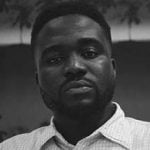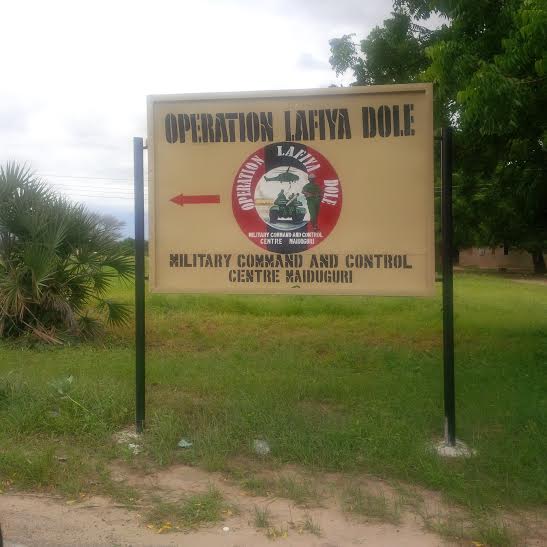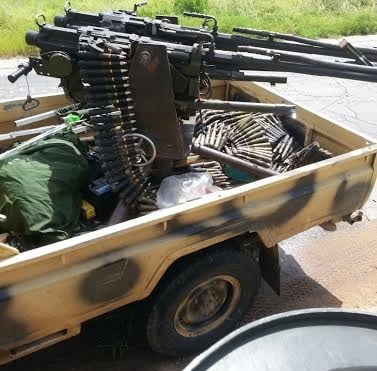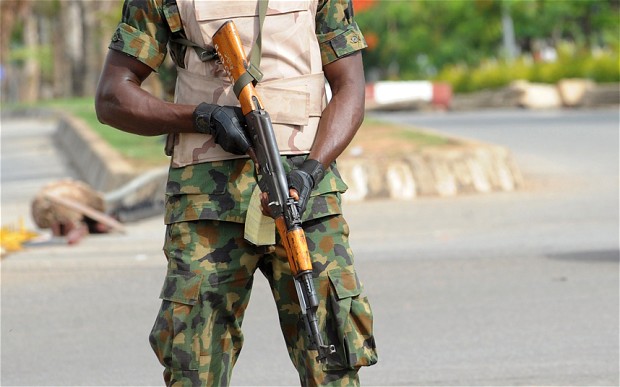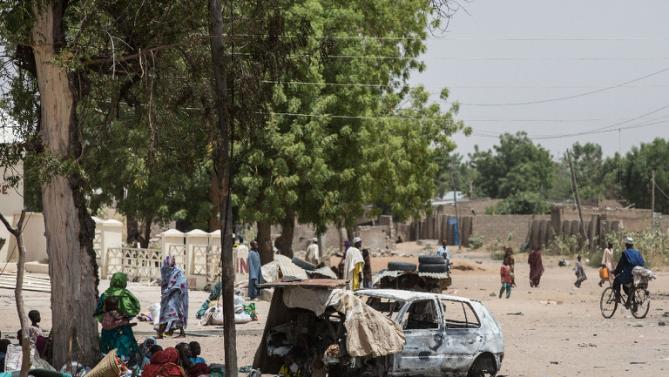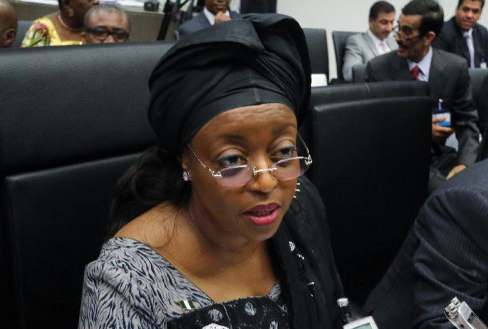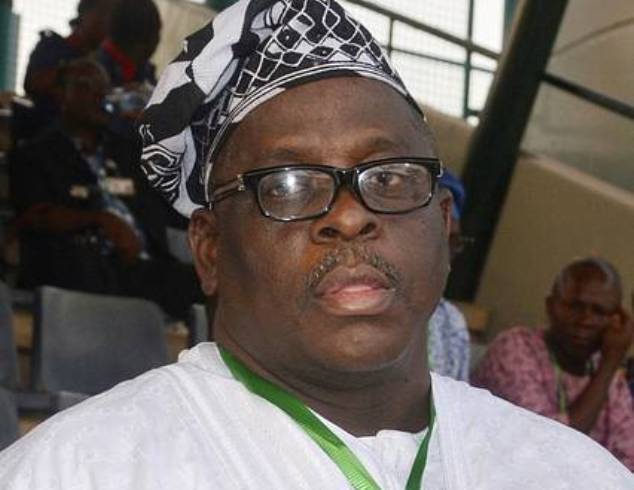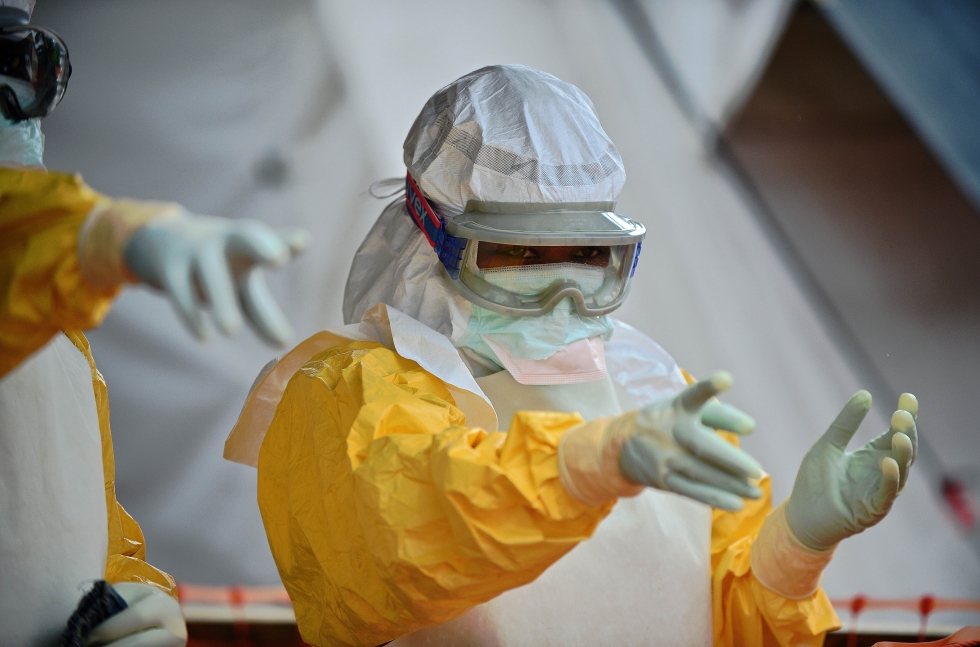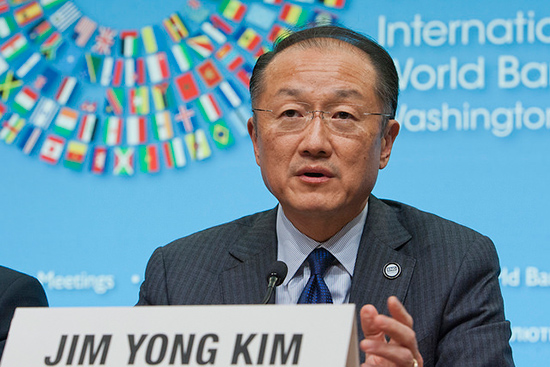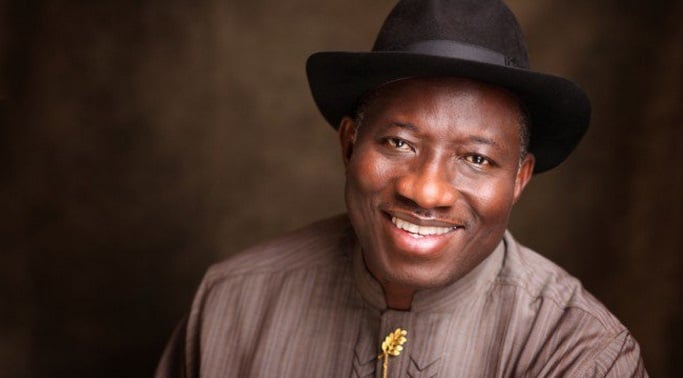DOGGEDNESS AND BOLDNESS
“I sent you a message via Facebook inbox. When you get to Welcome To Maiduguri, call this line so that I can come and wait and pick you up with my car to your destination.”
We were approaching Potiskum, when my phone network got one bar and I was able to receive that message. It was from J-Force, the soldier serving in Maiduguri whom I’ve only met on Facebook. I didn’t reply. Hours later, however, he called. And then, he called throughout, monitoring my journey till I arrived to meet him – already waiting at the Bornu Express Park.
Standing tall, with a broadly-built chest, he is garbed in a camouflage uniform.
“I follow your works online,” J-Force says, smiling, as we drive out of the park. “When I read that you are coming to Maiduguri, I was like; are you kidding me?”
Advertisement
Not knowing what to say, I manage to retort: “Thank you for this, sir.”
BEGGARS OR BOMBERS?
He pulls over by a bank. “Please wait, let me quickly get some cash,” he says, disembarking. Sighing, I throw my head backward, resting it against the chair. And soon, a group of beggars, like bees, circle round me, seeking alms. I am trying to reach for my pocket when J-Force suddenly appears.
Advertisement
“Don’t get carried away by all of these,” he says in a cautionary tone. “Some of them are members of Boko Haram in disguise. Do you know that one day, while managing the crowd, a soldier helped a beggar – a woman with her suckling – get through the crowd. The soldier died. Yes, when the explosives on the woman got detonated.”
Something hit my heart and I am gripped with fear as he talks on. He dismisses these beggars and he returns to the bank. I do not know that, J-force, even as he heads to the bank, has an eye on me.
“I was in Liberia in the years of ECOMOG. Such honour to serve Nigeria in a foreign land,” J-Force says with glee and pride as we drive out of the bank premises.
He tells me he doesn’t really know if he has been officially transferred to Maiduguri, but he says he has been here since 2011, fighting insurgency.
Advertisement
“The Command needed more soldiers,” he says, and adds with a grimace: “We work round the clock, no time for any other thing at all. My ribs ache seriously. For over a year, I’ve been sleeping on camp bed, and that is when you have the little time to sleep.”
Both of us are quite for minutes until we approach a T-junction, and he asks: “Where do I take you?”
I bring out my phone to call a friend’s cousin who had expressed willingness to host me in his place. The network is poor, and we can’t hear each other well. I keep trying and it won’t connect.
“Any hotel you can recommend for me?” I ask J-Force, my finger still on the dialing pad.
Advertisement
“Hotel…hotel…” he hums. “And I don’t know if you can stay in my room?”
I avoid his gaze, not knowing what to say. And without awaiting an answer, he adds: “But you will have to manage it o. Na soldier room. I don’t even know when last I was there, because I’m always at work.”
Advertisement
“Where’s the place?” I ask. “Barracks,” he replies.
“Oh, the one Boko Haram once attacked?”
Advertisement
“No. That’s Giwa Barracks.”
BBC’s Nigeria correspondent, Will Ross, had described the March 14, 2014 attack on Giwa Barracks in Maiduguri as “a particularly brazen assault”. A week after the attack, a footage showing armed Boko Haram fighters firing on the Giwa Barracks with assault rifles and rocket-propelled grenades, surfaced on the Internet.
Advertisement
“We have two main barracks here; Giwa and Maimalari. I am taking you to Maimalari.”
This sounds a perfect security for me. Even if I am going to sleep on the bare floor, as long as it is inside the military base, I think one is secured, I say this to myself.
“I won’t mind the room o,” I finally tell J-Force, smiling at him. “Good,” he nods, and zooms.
“How’s your family?” I ask him. “They are fine o. But I’m not married yet,” he says, smiling.
“Ha, why nah? Please marry o,” I tell him, teasingly.
“I would have o, but this job ehn. In fact, I had already saved enough for marriage three years ago when I had that girlfriend. And we were talking about marriage when I was told to report here in Maiduguri. I had to suspend the marriage plan. I can’t marry a woman now, leave her there and be here, you know?”
“That’s true,” I nod repeatedly.
RAMSHACKLE BARRACKS, RUN-DOWN WEAPONS
As we drive through the town, we are quickly allowed to pass by military men at roadblocks. “This road goes to Mongonu, Baga, Doron-Baga and then to Chad,” J-Force tells me as we veer onto the road, zigzagging the path leading to the barracks. We zigzag through the barricades at the entrance of the Maimalari Barracks. And almost 2km into the barracks, we arrive at the place, a block of rooms that make up a ramshackle building.
J-Force jumps out of the car, rushes into the room, and returns with a broom, beckoning some little boys playing around to help clean the room. Gently, I step out of the car and walk under the shade of the tree standing in front of the building. Two uniformed soldiers are under the shade, lounging, their rifles within reach.
J-Force comes over to tell the soldiers about me; and soon, we all get talking. I had been overhearing the two soldiers discuss politics before coming under the shade to join them.
“If Jonathan had won, I would have left this job!” One of them booms.
“But why?” I ask.
“Because things would have been worse!” He continues talking, using some military jargon. The only thing I’m able to pick is, Russia 1945.
J-Force, noticing that I am lost, breaks their conversation down for me. “We have a machine called Shilka, it has four barrels. The real name, however, is ZSU-23-4M. The acronym ZSU stands for Zenitnaya Samokhodnaya Ustanovka, Russian words meaning anti-aircraft self-propelled mount. The 23 signifies the bore diameter in millimeters and the 4 signifies the number of barrels.”
“Shilka has two engines,” he continues. “One is to propel the vehicle itself, to make it move that is, and the other engine controls the turrets, the guns that is. These guns can revolve 360, firing, without the guns turning. The Shilka we use here, the one he’s talking about, was manufactured in Russia in 1945. It was bought in 1981 and tested in 1982.”
“Outdated!” The soldier cuts in. “When I was in training, we were told not to operate this machine on one engine. This one here, the second engine is bad. We have been complaining about this. The working-engine is the one meant to propel the vehicle. Now, we have to put pressure on this one functioning engine; we put the gun loads on it and run both the guns and the vehicle on this one engine, whereas, the gun engine is usually a turbine-gas engine. You are fighting Boko Haram and after five minutes, sometimes less than 2km, this one engine starts to overheat. When this happens, the Shilka won’t be able to move or fire again. Yes, because the guns are interlinked with the driver’s compartment. Both the driver and the gunner are stranded and they are captured by these terrorists. We have cases of killed soldiers. We have cases of soldiers whose whereabouts we don’t know. When the soldiers, however, run – leaving the dead machine alone – to the barracks, they are handcuffed and locked in a guardroom.
J-Force takes over. “You know, Boko Haram went away with one of these Shilkas, when the engine failed and the soldiers fled. We managed to recover it later, but we were shocked by how these terrorists were able to fix the Shilka, in a more sophisticated manner even. Our own Army engineers were totally shocked when they saw this. Boko Haram cannibalized the turrets of the captured Shilka, reconstructed and powered by a Planck. I think these Boko Haram has sound engineers working for them.”
“Look, let the authority stop paying our salaries, but just buy us equipment!” the second soldier shouts.
“Femi,” J-Force turns at me, resting a hand on my shoulder. “If Nigeria can get just five new Shilkas for us, forget it, Boko Haram is finished!”
He may not be exaggerating, after all. A Wikipedia article says “ZSU-23-4s, especially late models, have excellent performance and good systems reliability”.
“Dozens of Nigerian soldiers refused to deploy for an offensive against Boko Haram Islamists until they receive better weapons,” mutinying soldiers told AFP in a report dated August, 20, 2014.”
One of the mutineers said: “We have vowed not to move one inch until our superiors provide us with all necessary weapons to effectively confront and dislodge Boko Haram, who have far better arms.”
However, January 20, 2015, in an exclusive interview with the Nigerian Defence Magazine, Nigeria’s then Chief of Defence Staff, Air Marshal Alex Badeh, dismissed the complaints of the mutineers. “…If someone with school certificate joins the Army, by the time he is five years in service, his salary has doubled that of a graduate. Why do you think Nigeria is doing that for us? Nigeria is doing that for us because we have vowed that we will defend our nation if need be with our blood; so for a soldier to come up and say I’m not well-equipped, yet you have a rifle; what do you want? You want APC, you want tanks? The basic weapon of an infantry man is rifle, so why should there be mutiny?” Badeh argued.
Earlier, in July 16, 2014, President Jonathan had written to the Nigerian Senate, seeking an approval to borrow $1biilon to fight the deadly Boko Haram sect. “In a letter addressed to the Senate President, Mr. Mark, Mr. Jonathan spoke about the need for external borrowing to enable the upgrade of security equipment in order to fight the insurgency that is currently bedeviling Nigeria, particularly in the North East,” Premium Times reported, in September of the same year when Jonathan’s request was granted.
It became a curious paradox, when, almost a year after Jonathan had gotten approval to borrow the $1biion, and few months that Badeh had boasted of a well-equipped military, Badeh would make a turn.
“Over the years, the military was neglected and under-equipped… Accordingly, when faced with crises in the north-east and other parts of the country, the military was overstretched and had to embark on emergency recruitments and trainings, which were not adequate to prepare troops for this kind of situation we found ourselves in,” Badeh confessed while delivering his valedictory speech in July 2015, at the pulling-out parade organised in his honour.
Militarybudget.org, an online resource for military spending data, shows that Nigeria, in the last 12 years (2001-2012), has spent $19,088,000,000 on its military. Breaking down the 2014 budget, Daily Trust reported: “A total of N845 billion was provided for recurrent and service-wide votes for the security sector, which includes the Armed Forces, Police, National Security Adviser’s office, and the para-military services. If the capital vote is put at 27 percent of the total for the security sector, then the security vote could hit about N1trillion. This is about the same as the amounts received by the sector in two previous budgets of 2012 and 2013.”
DISGRUNTLED SOLDIERS
“You know I was given only one uniform and a pair of boots since February 2014 when I got redeployed from Kaduna to Maiduguri?” The soldier nearest to J-Force says, staring at me.”
“But look at me,” he says, adjusting his belt and raising a pompous shoulder. I look at him, at his uniform; it is crisp and it fits well into his body.
“I have bought three other uniforms and pairs of boots by myself!”
“And you know, any quality military thing will cost at least 15, 000,” J-Force cuts in.
In January, when some soldiers told CNN that they bought uniforms from their own purse, the Nigerian Defence Headquarters was quick to debunk the claims in a press release. The military authority described the motive of the CNN interview as “satanic”
“Satanic indeed!” the soldiers roar in laughter, as I read the press release from my phone.
“And the sad thing is,” says one of them, “if you appear in anything old or torn, the authority will query you. Please, how would one uniform, daily used since 2014 February, look by now?”
“But, do we have an effective Intel-gathering?” I ask the soldiers.
“Well,” one of them says, shrugging, “there’s no time that Boko Haram wants to attack and the authority won’t know. Because when these terrorists gather, some villagers see them, and they bring the information. But most times, it is negligence on the part of the authority or this I-dont-care attitude or they just dismiss it as it’s-not-the-first-time-we-hear-this.”
The boys call on J-Force to inform him that they are done with the cleaning of the room. We move to the car and unpack my loads into the room. As we enter, my eyes travel round the room: The user of this place hardly uses it.
Minutes later, we are driving out to a restaurant. “They have correct food here,” J-Force enthuses. A man, who later appears a military cleric – as J-Force continually refers to him as Man of God – flags that we give him a lift. J-Force and the man speak on in Hausa and I can barely pick the conversation until the man speaks English.
“I am destabilised,” he says. “I don’t even know what to preach to the soldiers. Soldiers have tried their best and continue to give their all.” He returns to speaking in Hausa, his tone laced with lamentation.
Returning from the restaurant, Jack, a friend and an on-ground journalist whose reportage focuses on terrorism and military actions, joins us. “This is the post office,” Jack says, tapping me on the shoulder as we drive towards a roundabout. “Post office is just like the Oshodi of Maiduguri,” he says, smiling. Oshodi is a popular, densely-populated area in Nigeria’s commercial city of Lagos.
“The very first suicide bomb blast happened here,” he continues, pointing at a spot around the Roundabout. “Many others have happened. You can see how everywhere looks a bit scanty? You needed to see how crowded and busy this place used to be. The casualties are mostly the market people, beggars and all.”
“The sound of bomb blast in Maiduguri is now ringing tone to us,” J-Force says, laughing.
“Naso o,” Jacks adds, laughing as well. I look away, worried. My friends have seen too many that it has become a part of them. Ringing tone? “There was a time that no uniformed soldier could drive round town like this in a civil car,” J-Force says, gently slapping the dashboard. “Do you know that the building behind that place that we ate was once bombed? The woman, restaurant owner, only returned to business recently.”
It is night and J-Force drives me to where we will get what we will have for dinner: kunu geda and masa. From there, we drive on to the 7 Division Hospital that is a few kilometres away from the Maimalari Barracks’ gate. On the way, we see three men in camouflage vest, limping on their walking sticks. “These are our soldiers,” J-Force says as he stops by them, to lift them down to the hospital. I hail them, and I shake their hands. “Get well soon, sirs,” I say to them.
DOGGEDNESS AND BOLDNESS
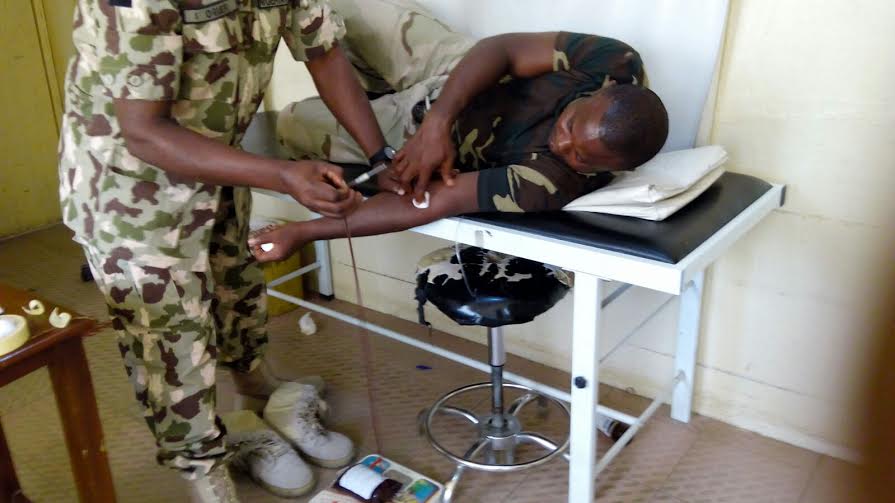
We arrive at the hospital, and walking through the corridors, I see soldiers everywhere on the gurneys, and some on camp beds. Some, the bandage is around their arm, some around their ankle, some around their forehead. A particular one with a bandaged left hand is still holding his rifle with his right. I see another one, deep in sleep, but his head rests on his rifle in a you’ll-have-to-get-me-first-before-my-rifle manner. There, I remember the words – slogan – I saw printed above the entrance-gate of the barracks; Doggedness & Boldness. Exgee told me in Damaturu: “Even when these soldiers are inside the toilet or bathroom, their rifle is within reach! These 7Div soldiers!”
At the hospital gate, I overhear the conversation of two soldiers walking in front of us. “You dey duty?” One asks. “Yes o,” the other replies, laughing, his gun dangling across his chest.
“I dey guard tonight,” he continues. “Na me go dey inside that tank for gate, keeping Boko Haram from breaking into this Barracks, na me dey protect una tonight o.
“Ha, Bokoboko,” his partner is laughing hard, too. They make fun of it, slapping each other’s shoulder. I watch them, wondering and asking myself, what really motivates these guys?
“When any Nigerian soldier tells you that he has served or he is serving in the 7Division, please remove your shoes, kneel down, put your two hands up, and say to him, my lord!” I send this to a friend in Lagos on BBM chat as J-Force and I walk on.
“But, why would you say that?” the friend replies, almost disdainfully. I hiss and end the chat.
At another corridor inside the hospital, I see a man whose leg is chained to the gurney. “Yes, he’s one of the members of the Boko Haram terrorists that we arrested,” J-Force says. Soon, we see a military doctor who comes close to the chained man, and with his gloved hands, examines the captive’s body.
“Why is the military treating the bloody terrorist?” I whisper to J-Force.
“Femi, he has a right to be treated,” he says. “You see, we have a place that we keep these guys when arrested, and when anyone of them falls sick, we bring him here for treatment.”
Strange. The news has always been about the extrajudicial execution of Boko Haram detainees and suspects by the military. In June, Amnesty International had asked newly sworn-in President Muhammadu Buhari to investigate some senior military officers for alleged complicity in the extrajudicial killing of more than 8,000 people in the north-east.
HERE COMES A BRAVE SOLDIER
“There is a gunner I will like you speak with,” J-Force says, beckoning one of his colleagues to ask after the soldier. “He spent nights in the forest and mountains after escaping one brutal Boko Haram attack in Gwoza.”
A few minutes later, the soldier limps out of his ward, and we move outside, to sit under a tent close to the hospital.
“I am a victim of circumstance,” the soldier, Kala, begins, his weak voice piercing through the chirping of crickets as I lend him a hand so he could sit on the plank. “It was on the 25th of August, last year [2014].
“It was at the Gwoza junction where we were deployed as a blocking force. The incident happened at about some few minutes after 2pm, broad daylight. Those insurgents came with a lot of APCs that surpassed our own. They surrounded all of us, but we were trying our possible best thinking that since we have tactics than them, we could overpower them. Upon all our tactics, we eventually exhausted all our ammunitions. And before you knew it, our APCs and other vehicles shut down, and we couldn’t face their firing again.
“I am a RPG firer. We call it grenade launcher. I am one of the firers. I was having about 26 bombs engaging their vehicles. I counted the vehicles I engaged; it was up to eight, and anyone I got on a very good target, I fired, including the gunner, driver and the criminal on top of the vehicle. Personally, I destroyed up to eight vehicles of those insurgents. Upon all that, would you imagine that these people still penetrated and dislodged everybody?
“So, when they dislodged us, we were all running to go and enter our own APC. About 16m for us to enter our APC, the APC couldn’t withstand the volume of fires from the insurgents, and so the APC withdrew and left us. The APC guns weren’t even working any longer. We now ran into the bush, about 13 of us. We ran far and far. And then, the insurgents now deployed about 300 of their men, to watch the area where we ran into. They saw that our colleagues had left us. We were surrounded and anybody that came out was brought down, one by one. I was running up to 60m trying to burst out. I got tired, and I said to myself, I cannot go out and allow them to kill me just like that. Let me rest and remain in this lying position and I will continue engaging them until they will kill me. I know I’m going to die.”
“You still had your rifle?” I cut in.
“Yes, I had my rifle with me, two magazines and two boxes of ammunition. I will be engaging them with these ones till they kill me. I won’t allow them get me cheaply. You know, once you lie down, you become a difficult target for the enemy. So, I prayed and remained in that position.
“I was observing all the activities of these enemies, thinking they will just finish and go. No. I heard them saying our people, the military, may bring a reinforcement to come and rescue us and take over the place from them. I remained in that position for hours, so also the insurgents. Whenever I rose and peeped, I saw them still surrounding the area. At a point I watched them communicating like bush animals, communicating with different signs. If you are not attentive, you will not know, you will think they were actually animals. I saw them and noticed all of these things. These people are well-trained. Some of them wrapped their faces that you can never recognize them. We don’t know where they came from, but I observed that some of them are specialists. Because, by mere looking at their skin, you will know this man is not a Nigerian man.
“I remained there and around 10pm, I heard them talk about withdrawing. The next morning, I jumped up, and prayed. I said Lord, please direct me to the right path to follow and join my colleagues. Immediately after the prayer, I started walking out. At about 150m, I crossed one road and walked another 2000m, completely right hand. I was trying to plot the bearing of the mountain of Cameroon, which I knew was the direction of Kerawa. I was targeting that mountain. I knew that once I got to this place, I would find my way because I knew the place very well. We used to go on patrol there. I told myself I would walk until I got to Kerawa; that’s the boundary between Nigeria and Cameroon.
“I walked till it was dark, and walked throughout the night. Anywhere I got tired, I lay down. I couldn’t sleep, I only rested. When I had rested, I jumped up and moved on. I walked on till 5am the next morning. I got to Kerawa, and I knew my colleagues from the Battalion Headquarters were being deployed here at the boundary in Kerawa. I thought to wait till the day got bright and then go to submit myself to my colleagues. I climbed the mountain so I could go sleep. Immediately I climbed, looking down, I saw that the camp of Team A had already been taken out by Boko Haram. The terrorists were the ones there now, monitoring the activities in the area. When I discovered this, I climbed farther. I climbed till I got tired and slept off. There was no water to drink, there was to no food to eat. I didn’t even have any energy again. I slept for hours.
“When I got up, I saw that the Boko Haram members were still there. So, I lay down on the mountain until the day got dark. Once it was dark, I got up and advanced. You know, it’s from mountain to mountain till you will get into Cameroon. I moved from one to another till I got to one and slept again. 5am, I started advancing again. I descended and then climbed another one, and I got totally tired.
“I was resting under a shrub that was by a rock when I saw some antelopes moving, looking for food. And soon, I saw the animals plucking fruits, and I said okay, this is the kind of food I have to eat. So, I went there and plucked all the fruits, both ripe and unripe. I filled my magazine with the fruits. I ate the ripe ones and there was no water to take, but I already had energy to move. I continued to climb the mountain, a very high mountain.
“I climbed until the third day. When I was about climbing the utmost part of the mountain, the weather now changed. I was happy, hoping on the rain so that I would have water to drink. But again, I thought, if it rained, the water was going to drag me down and I may die. I made up my mind and climbed on. I reached a part and sat down. I removed my helmet and kept it by my side, and before you knew it, it started raining. It so rained heavily that my helmet got filled with water, and I drank from it. I had enough energy but the rain continued drenching me until 3am when it stopped.”
“There was no place where you could take cover?” I asked, my heart seriously racing.
“Nowhere on that mountain. “I pulled off my drenched uniform and squeezed the water out. Breeze started blowing after the rain had stopped, and by 5am my cloth got dried and I advanced. All the communities in this area were under the insurgents. Everybody was running helter-skelter, because the insurgents were moving from house to house, chasing the youths – that anybody who wanted to do the work of Allah should come out. ‘If you want to do the work of Allah, come to this side. If you don’t want to do the work of Allah, come to that side,’ they said. Once you came out that you could not do the work of Allah, they slaughtered you. Nobody objected because nobody wanted to die. They were following them. I watched all these activities from the mountain. I got worried, asking myself how I was going to disembark from this mountain. After hours of watching from the mountain, I thought I should hide my weapons in a safe place on the mountain, pull off and go down like a civilian.”
ESCAPE TO CAMEROON
“I pulled off and went down with a boxer. When I touched the ground, I saw an old man. He was about running, but I approached him, explained myself and he understood me. The man told me he and his family were about running to Cameroon, but they didn’t have clearance, so they were going to follow a long route. I begged him to assist me with clothe and he gave me a shirt and a trouser. He directed me to go straight until I reached a red soil, which he said was Cameroon. I followed his instructions.
“When I stepped into Cameroon, the Cameroonian soldiers were about to open fire, thinking I was a Boko Haram member. But I raised my clothes and surrendered myself; eight of them approached me and I explained myself to them. Luckily, they had been briefed that some people were missing, because I had radioed earlier. They searched me and welcomed me. They got me refreshed. I remained with them, and they interviewed me. I was there with them for three days when another of my colleagues whom we were dislodged together came, too. I got him cleared and we were documented. They bought us clothes; this very pair of jeans I’m putting on now as I speak with you was bought by the Cameroonian soldiers. Their General also gave us money so that we could use it to buy the other things that we needed.
“At this time, was the Nigerian ambassador in Cameroon contacted?” I curiously asked.
“No. They were only notified of the withdrawal of the convoy in Kerawa; they weren’t notified of the missing soldiers. If they were notified, they would have come to see us, because we were there for seven days before we were finally moved. A Cameroonian Major personally escorted us in a convoy on the eighth day. The distance is like from Abuja to Kaduna. Getting to where we were headed, we now boarded a coaster bus. The Major paid the driver and gave him a note that we are Nigerian Military men. He also gave me a note for clearance on the way in case we met their police. You know the security of Cameroon is not like Nigeria. You cannot move aimlessly. Having spent a number of days, I could see it. They have a very tight security.
“In the coaster bus, the distance was like from Kaduna to Jos. They had already called one of their unit heads who would receive us. The place is called Mukolo. So, before we got to Mukolo park, I called Captain Mubasa that the soldiers Major Clement spoke about had arrived Mukolo. He told us he would join us in three minutes. They came with their Hilux to pick us to their place. We passed the night there, and the following day, they led us through Boa where we were told would lead us into Nigeria. And that was how we returned to Nigeria.”
“But, were there any arrangements by the Nigerian authorities receive you guys?” I ask Kala.
“A very good question,” he says. “There was no effort from the authority. They were informed and they made no effort to come and collect us. Our entry back into Nigeria was entirely our own business. After entering, we trekked a distance of about 20km. We entered with 83 civilians, refugees that ran from Nigeria to Cameroon. I was the person that did their clearance at the border. Most of them were women and children with lots of loads on them. And they were all tired. There was no security check on entering Nigeria. Nobody bothered to check us. I returned to the barracks and I continued my work, as if nothing had happened to me.”
“Did you report this?” I cut in.
“Immediately I arrived, I was surrounded by a lot of people and I gave them the details of everything that happened. The authorities are fully aware. Everybody is aware of what happened to me.”
Again, I asked: “Do you know why the authorities haven’t done anything to your case? Why the seeming negligence that they couldn’t even send an aircraft to pick you survivors from Cameroon?”
“Well, I don’t know why it’s like that. But, there was a change of command because as the insurgents were dislodging troops at different locations, they were changing commanders. And no new commander wants to listen to what has happened. He just wants to come and carry out his own actions. Nobody wants to take action on any issues that happened because they fear being court-martialled. That is what I have seen as the reason. If my commander hadn’t been changed, however, he could have known what to do. But the moment we were dislodged, he was changed. We were about 156 that that joined in before we were dislodged at that junction. A lot of soldiers are still missing as we speak now.”
RETURN TO NIGERIA, STRAIGHT TO GWOZA
“Is the authority making any effort in finding these missing soldiers?” I ask.
“For now,” Kala hums, “nobody is making any effort to find missing soldiers. They only place them on Missing in Action. Nobody is making any effort.
“You talked about your health when we were on our way here.”
Kala cuts in: “Good! That is the recent one that happened.”
“I told you, upon my return; I resumed work immediately as if nothing happened. Right from this barracks, I was deployed back to that town called Gwoza. I joined the troops to capture Gwoza. That is one of the terrible areas of Boko Haram. It’s their hideout.
“You mean you were redeployed there?” I ask, raising an eyebrow at him. “How did you feel?”
“Well, when I returned, I was expecting that they would say okay you, you are welcome you should go for rehabilitation. But, to my surprise, there was nothing like that. The authorities were aware of all I had gone through; I was still taken to advance to Gwoza again. I followed them, from point A to the point that we captured Gwoza. As God will have it, we moved into Gwoza with enough armaments this time. It wasn’t an easy task but God did it for us. We cleared the insurgents off the place.
“So, after capturing the place, we were thinking the authorities would rotate us. But we were there. We never knew that it was we who captured the place that would stay there until further notice, up till this moment. As I am talking to you now, my unit is still at Gwoza. One day, we went on patrol and as we were going, our vehicle fell into mines. That was along Gwoza-Wala A and B. And before we knew it, we lost four soldiers. We were 10 in the vehicle. And the rest of us were brought into the 7 Division Hospital here.
“After the treatment, my right ear hasn’t been functioning. It got affected by the blast of the IED. I was referred to UMTH (University of Maiduguri Teaching Hospital), and that’s where I actually receive my treatment now. The doctor said it has affected my eardrum. It may take a long time – if I will hear with the ear again, that is.”
‘I’VE HAD ENOUGH’
“Since when have you been on treatment?”
“July 23rd,” he says, then his voice begins to faint
“Have you been compensated in any way or form?” I ask.
“Compensated?” he chuckles. “Well, they do feed us here. Three square meals per day. Apart from this, there’s no other compensation.”
“What are your plans when you get well?”
“Well, when I get better, I plan to write for voluntary retirement. And if they do not comply, I may just find a way to leave.”
“You mean, you don’t want to fight anymore?”
“I have fought and fought enough. And in all these fights, God has been saving me and I’ve not seen any actions carried out for those who lost their lives. Their families are suffering. Some of them, when their wives see me, they will be asking about their husbands. Have you seen my oga, have you seen my oga? They suffer even more than when their oga was alive. So, I don’t want this for my family. I want to recover and plot my bearing on voluntary retirement.”
In August 2014, wives of the soldiers in the 7 Division staged a protest, calling on the authorities not to deploy their husbands to Gwoza with obsolete arms. The protest was after they had watched how more than 50 soldiers were given a mass burial at the Maimalari barracks. Abuja-based Leadership newspaper reported it.
“But, what do you think is the problem with the system and how do we solve it?
“If there’s no war, our generals will not make money. The more there is problem, the more money the Generals make. Once there’s no crisis, there’s no money for them. I think that is the main reason.
“How is it going to be solved? In the Nigerian Army, you don’t have any say as a soldier. Only the officers have a say. They believe they know better and don’t like listening to soldiers’ advice. Do you know that these fence here, there are mines around it? But if you tell them that there are mines here, they will say no, who told you? They will say move, and once your vehicle moves and blow, they will say oh. They will not even accept. That is what is killing us.
“The only way that this can be solved, now that there is a change of government, the new president is an ex-general who knows the secret of this job, and knows how to handle these Generals. If he orders that an area be recaptured, and he provides all that’s needed, let me see how they won’t deliver. But you see, when Jonathan was president, they will request for some things and when the presidency signs it, they won’t do a follow up. And so, the Generals will go and repaint outdated equipment, those bought in the years of President Shehu Shagari. That was what they did throughout Jonathan’s regime. I strongly believe Buhari will critically see to things. The Generals were all confused the moment Buhari was announced president.”
Kala tells me of the members of this terrorist group that they’ve been able to capture alive. “They do send in spies into the communities,” he says. “We arrested one of the Boko Haram imams who used to pray for them before they go on any attack. The imam told us that he was forced to work with them, and since he had no option, he obliged. The imam confessed that supplies for Boko Haram were delivered in a white helicopter inside Sambisa forest.”
“Does this helicopter have any symbol on its body?” I ask.
“No, he said just pure white. And it normally comes in the night. And once it lands, they go to offload armaments. The imam has been transferred to the Military Headquarters in Abuja. The man begged not to be killed and that if taken to a safe country, he will give all the information about Boko Haram. At the time we caught him, however, the helicopter wasn’t coming. They knew that the authorities were aware and now they were coming through the waters. They brought their supplies through water. The Imam told us that Boko Haram had vowed to attack this barracks.”
J-Force comes around, and he takes me to his office. While we sit, checking on the recording with Kala, we hear a sound. It is abnormal, so I am startled. J-Force looks at me, and says nothing. I, too, look at him, and say nothing. Minutes later, he drops me off at the room, and zooms off to duty.
Left in boxers, after taking my bath, I go to the door to lock it. It has no lock; damaged. My heart beats faster. I will sleep here without locking up? Sighing, I leap into the bed. There’s no pillow. Laying my head gently, it hits something kept underneath. I sit up, pull up the mattress, and retrieve it; it is an army-branded rifle. I jump out of the bed, gasping for breath.
My phone starts to ring. “Hello Femi, you remember that sound we heard when we were at my office? It was a bomb blast. We have just been called to be at alert to receive casualties.”
I shiver. J-Force terminates the call, and my phone rings again. It’s a girlfriend calling. I tell her a bomb just went off in Maiduguri and the sound reached us at our location.
She screams but I laugh, trying to show her I’m not scared.
“Is it funny?”
“No, but no terrorist dare nears me here, I have seen a machine under my bed,”
“A machine?”
“Yes, a gun.”
“Jesus! What? Stop saying this. Can you even operate it?” her voice rises to a scream.
“I will learn how to, on Google,” I say, chuckling.
Ending the call, I walk to the window, pull the curtain a little and I peep into the darkness that reeks of bushes. This bloody civilian will be here, for the next few nights.
Doggedness, and boldness.
Owolabi, a freelance journalist, writes from Lagos
